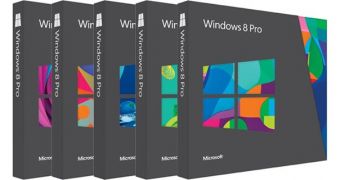Microsoft is working to make Windows a bit more affordable for manufacturers, in an attempt to bring cheaper devices to the market, but this new trend of subsidizing license costs could in the end affect Redmond's sales directly.
In a note to investors on Thursday, Trefin analysts revealed that Windows license pricing per PC is very likely to drop significantly in the coming years and could reach $42 (€30) by 2020.
Although Microsoft's revenues might be more or less affected, the number of sold licenses is very likely to grow, thus boosting the market share of Windows in the desktop market.
“This should help stem the decline in OS market share as the company will be able to limit client migration. Currently, Microsoft has approximately 78% market share in the operating system space, and we expect that to stabilize at 75% by 20,” the analysts said in the note posted by Forbes.
It's a well known fact that Microsoft continues the transition to a devices and services approach and analysts estimate that Surface tablets could even help the company increase revenues. More smartphones are also expected to be sold, they said.
Windows 8.1 will also boost the adoption of Microsoft's Bing search engine, as users who make the move to this operating system aren't only encouraged to try out this particular service, but they also have the opportunity to see it at work thanks to the integration in the operating system.
Bing is powering the Smart Search option available in Windows 8.1, providing both online and offline results when searching for files.
“We estimate that the service has around 2.6% global search market share, but we expect this to expand over our forecast period with Bing as the default search engine on the OS. This improvement will contribute to an increase in Bing’s market share, which we think will reach around 4% by the end of our forecast period,” the analysts explained.
Of course, these are only estimates and nobody can tell for sure whether Microsoft wants to go in the same direction on the long term, but there's no doubt that in most of the cases, the forecast clearly reflects the company's plans in the next few years.
The hardware business is living proof, as Microsoft has invested a fortune to make it successful and although it's still losing money with every Surface it sells, the company is well positioned to boost revenues and make the Surface a profitable product.

 14 DAY TRIAL //
14 DAY TRIAL //